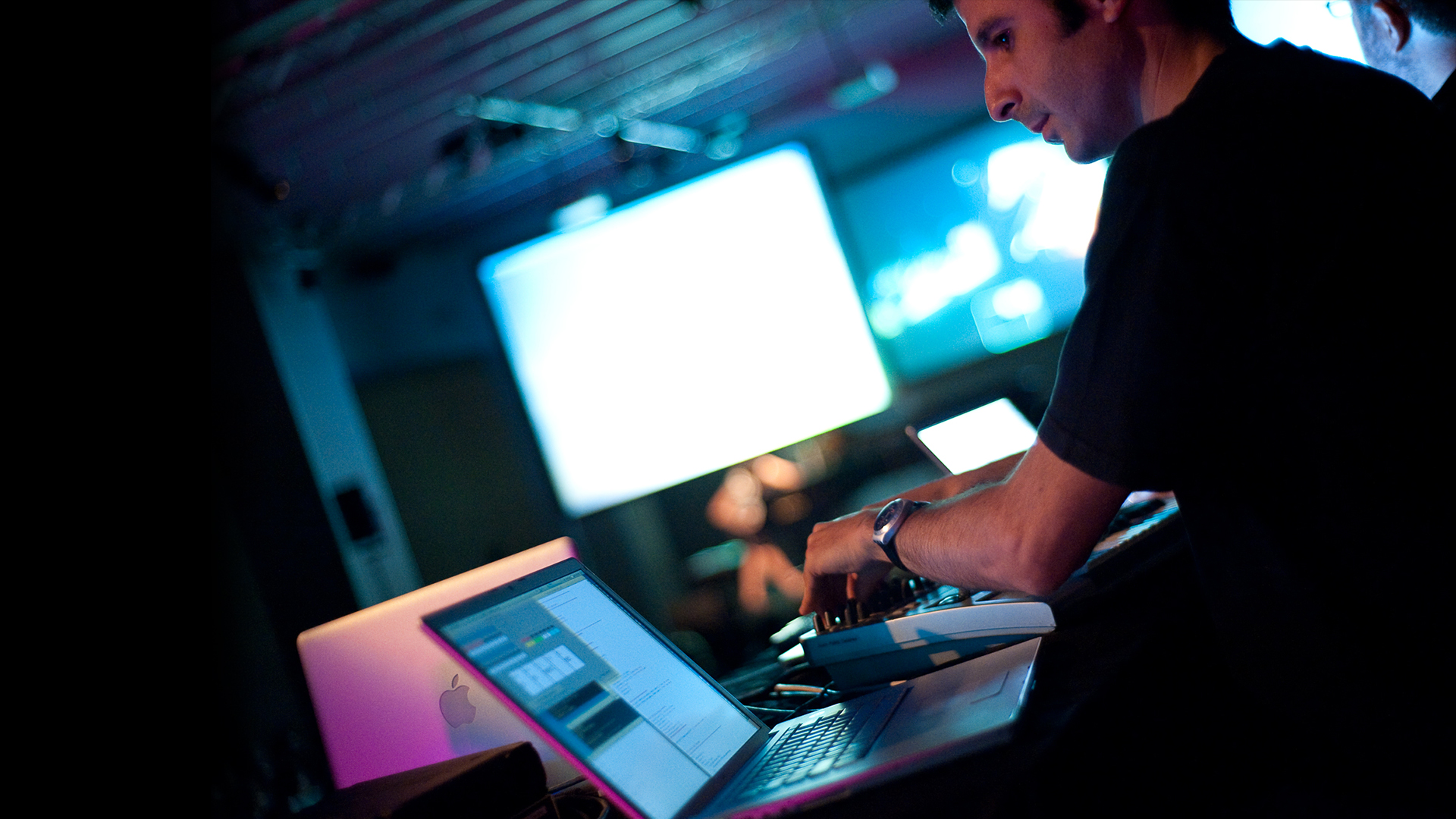
Senior Research Engineer Juan-Pablo Caceres creates technologies that transform how people use and edit audio. Now, along with the Audio Research Group at Adobe Research, he is working to bring AI innovations to the creation of voice content. Caceres told us about his career as a research engineer with the heart of a musician.
How did your career path lead you to audio research at Adobe?
My background is in engineering. As an undergraduate in Chile, I studied engineering and later music composition too. I was passionate about both, so I just did the two of them. Then I discovered that in the US, there were programs where you could study music from a scientific perspective. I did a PhD at Stanford in this field—exploring how to use computers to understand and create sound and music.
I had a Fulbright Scholarship when I came to the US for my graduate degree. Afterwards, when I returned to Chile, I worked at a university. But I wanted to have more real-world impact than I could with pure academic research. I started consulting, and then decided to move back to the US and work at a company making a difference in audio. I consulted for Adobe and later became a research engineer at Adobe Research.
At Adobe Research, we can choose what we work on, and we can collaborate with many people across the lab as well as interns and their faculty advisors. We also can be visible to the research community through our publications and conference attendance. But above all, we have a real-world impact when our research makes it into products, and thousands of people start using it. That’s what I love about it. It’s the best of both worlds.
How are music, audio work, and engineering connected for you?
I play drums and compose music. I have a few albums out in Europe and the US, including one on Spotify. My compositions are experimental. I’ve worked with rock bands on chamber rock—rock with violins, computers, and electronics–and in experimental pop bands with Stefano Corazza, who also works at Adobe. And I also do computer music, composing everything with samples or synthetized sounds.
When I was at grad school, I developed (along with my advisor) a technology to help musicians perform in real time over the Internet. This project has been used in academic projects since then, but with the pandemic it is now really taking off. I did minor maintenance during the course of several years, and now a community of developers and musicians jumped in and took the torch in its development. I don’t have time to be involved directly anymore, but it’s great to see it taking on this new life.
There was recently an NPR video exploring this technology too.
Music and engineering are connected for me. When you create and architect a computer system, it’s like composing music. You are creating a system, and at some point, it starts working. It’s a very satisfying feeling. I love combining engineering and audio work.
Has your work been included in any Adobe products?
Yes: one example is REMIX for Audition, Adobe’s audio software. It’s a tool that analyzes song files, identifies the loops and segments, and allows you to remix the music to any length. If you want to match a video clip with music, this technology makes it easy. You can also adjust elements of the song quickly and customize the sound.
What’s coming next for audio research?
We are looking at how deep learning can improve doing everything we do. This is happening across all the research fields now. A lot of what’s coming has the goals of helping creators be more productive and unleashing new innovations for content creation.
Technology always seeks to produce new tools that people can use creatively. In audio, these technologies can help podcasters, vloggers, advertisers, and others to focus on the creative aspects of their work and we can make them sound great.
Audio is a form of human communication. You have someone who wants to communicate something to another human. The human element is always going to be important, but the roles and the interactions between creators and these new technologies might change dramatically.
Based on an interview with Meredith Alexander Kunz, Adobe Research